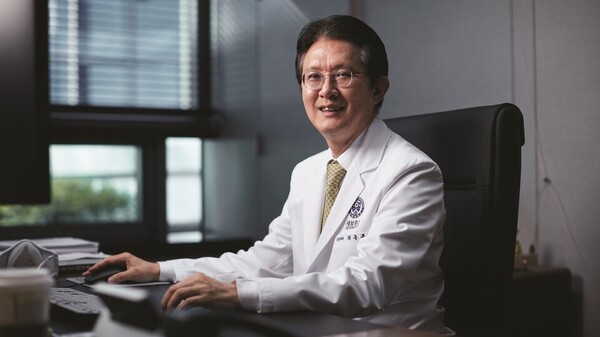The government's plan to strengthen compensation for interventional procedures for severe heart disease has received a warm welcome from the academic community, which predicted it would encourage young doctors who treat myocardial infarction in regional hospitals.

Dr. Choi Dong-hoon (Department of Cardiology at Severance Hospital), president of the Korean Society of Interventional Cardiology (KSIC), said so in a telephone interview with Korea Biomedical Review, explaining the government's plan to strengthen compensation for interventional procedures for severe heart disease.
The plan to strengthen compensation for interventional procedures for severe heart disease is a project that KSIC has worked on for years. It recently came to fruition after more than 30 discussions between the Ministry of Health and Welfare and the society.
Interventional cardiology is a procedure that quickly clears blocked heart vessels through stenting or balloon dilation in the event of an acute myocardial infarction. It is a representative internal medicine procedure with frequent emergency and on-call procedures and a high workload.
The government’s decision has improved the reimbursement standards for interventional procedures for severe heart diseases, which have not been adequately compensated due to the limitations of the current fee-for-service system. The standards now consider waiting time, work intensity, and difficulty.
First, it expanded the scope of emergency procedures for acute myocardial infarction, reimbursed at 1.5 times the rate of general procedures. Previously, the higher rate was applied only when acute myocardial infarction was evident from an electrocardiogram or when vital signs were unstable. Now, however, it is possible to perform emergency procedures within 24 hours.
"Myocardial infarction is a serious disease with a very high mortality rate. Until now, however, it has been divided into ST-segment elevation acute myocardial infarction and ST-segment non-elevation acute myocardial infarction. While the former has been supported, the latter has been treated similarly to angina," Professor Choi said.
He continued, "For nearly a decade, the society has argued that the two conditions are the same and the treatment should be the same, but this has not been accepted, making it difficult for young doctors, especially those who are on call to treat myocardial infarction in the community, and has contributed to their departure from the field."
Choi believes the enhanced compensation may reduce the number of young doctors leaving the field, especially those on call to treat myocardial infarctions in local areas.
The government has also improved the criteria for calculating reimbursement for cardiovascular interventions, previously limited to two out of four cardiac vessels, even if more than two are stented. As a result, it will now be possible to calculate fees for procedures on all blood vessels, and the number of procedures will be significantly increased to 270 percent from the previous maximum of 130 percent.
"This is also something that the society has been arguing as unreasonable for more than five years, but it has not been reflected, so we are glad and welcome that it has been improved, even if it is late," Choi said. "This decision will greatly help patients by eliminating the inconvenience of repeated hospitalizations for treatment."
KSIC hopes that the government's decision to enhance compensation will provide some relief to vascular care physicians who have been struggling with the recent healthcare situation. Choi added that the government and the medical community must work together to do what is best for the people and patients.
KSIC President Choi also stressed the need for a permanent body to discuss reimbursement system improvements between the government and the medical community.
"I think the current situation of the medical community has activated the communication on this (enhanced compensation for interventional procedures for severe heart disease)," Choi said. “However, we need a permanent body where (the government and the medical community) can meet and discuss more often, not just on a case-by-case basis."
The government always says that it is available for discussion, but no permanent organization can discuss the medical community's position. Choi emphasized that KSIC would like to see frequent discussions through councils and other organizations and policies that reflect the medical community's views.
The public may think that doctors only represent their interests. However, Choi said doctors who are in charge of essential medicine, such as cardiology, are always thinking about patient policies.
"Cardiology is a department that deals with emergencies, so there are many returning doctors (who have left the field), and patients know this, so they support the doctors in the field," he said. "Not all doctors are sitting idle but are working hard in essential and emergency medicine. I hope the public will recognize this.".

